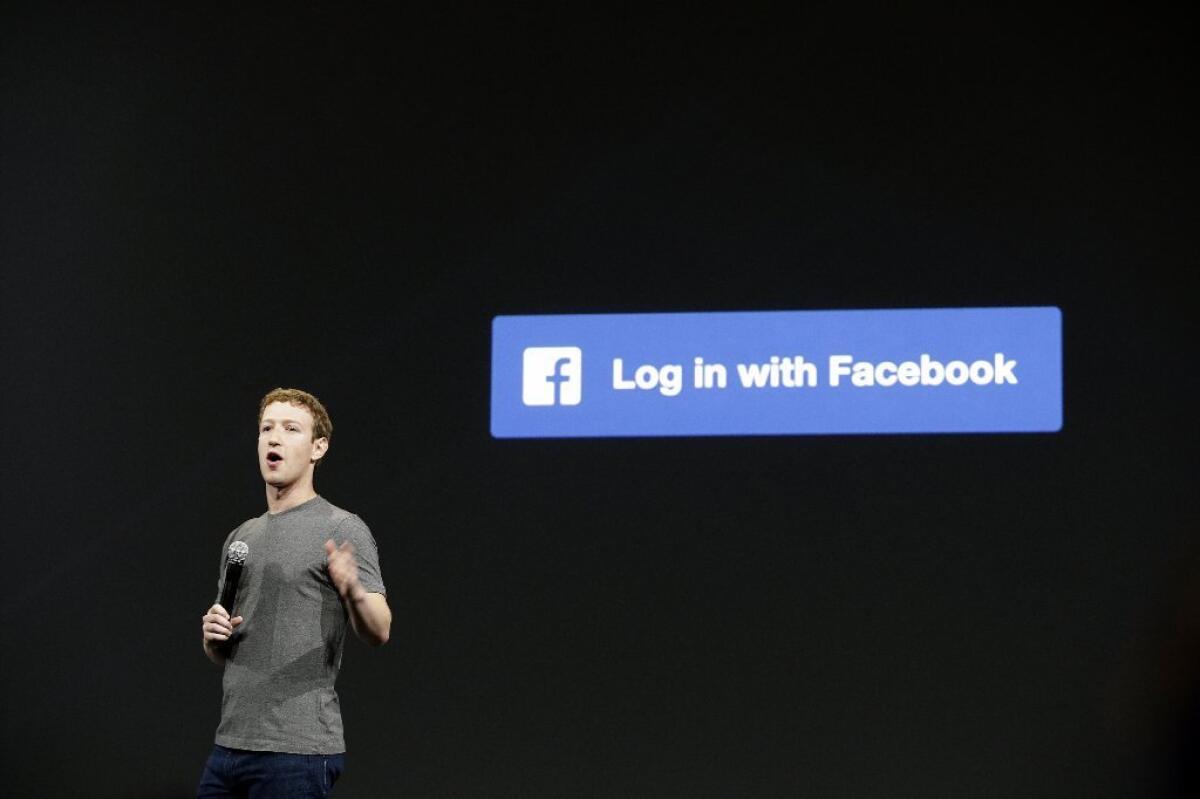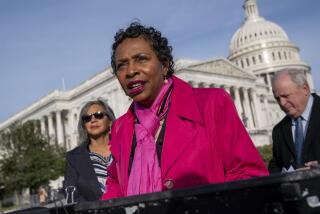Facebook considers political advertising blackout ahead of U.S. election

- Share via
Facebook Inc. is considering imposing a ban on political ads on its social network in the days leading up to the U.S. election in November, according to people familiar with the company’s thinking.
The potential ban is still only being discussed and hasn’t yet been finalized, said the people, who asked not to be named talking about internal policies.
A halt on ads could serve as a defense against misleading election-related content spreading widely just as people prepare to vote. Still, there are also concerns that an ad blackout could hurt get-out-the-vote campaigns, or limit a candidate’s ability to respond widely to breaking news or new information.
Facebook doesn’t fact-check ads from politicians or their campaigns, a point of contention for many lawmakers and advocates, who say the policy means ads on the platform could be used to spread lies and misinformation.
The social media giant has been criticized in recent weeks by civil rights groups that say it doesn’t do enough to remove efforts to limit voter participation, and a recent audit of the company found Facebook failed to enforce its own voter suppression policies when it comes to posts from President Trump.
Hundreds of advertisers are currently boycotting Facebook’s advertising products as part of a protest against its policies.
Advertising blackouts before elections are common in other parts of the world, including the U.K., where Facebook’s global head of policy, Nick Clegg, was once deputy prime minister. A Facebook representative declined to comment.
In 2016, Russian operatives used Facebook to spread misleading and divisive ads and posts, and the company has made a series of changes since then to tighten up its political ad process, including the implementation of stricter requirements for buying ads and the addition of a searchable ad archive.
More to Read
Inside the business of entertainment
The Wide Shot brings you news, analysis and insights on everything from streaming wars to production — and what it all means for the future.
You may occasionally receive promotional content from the Los Angeles Times.










